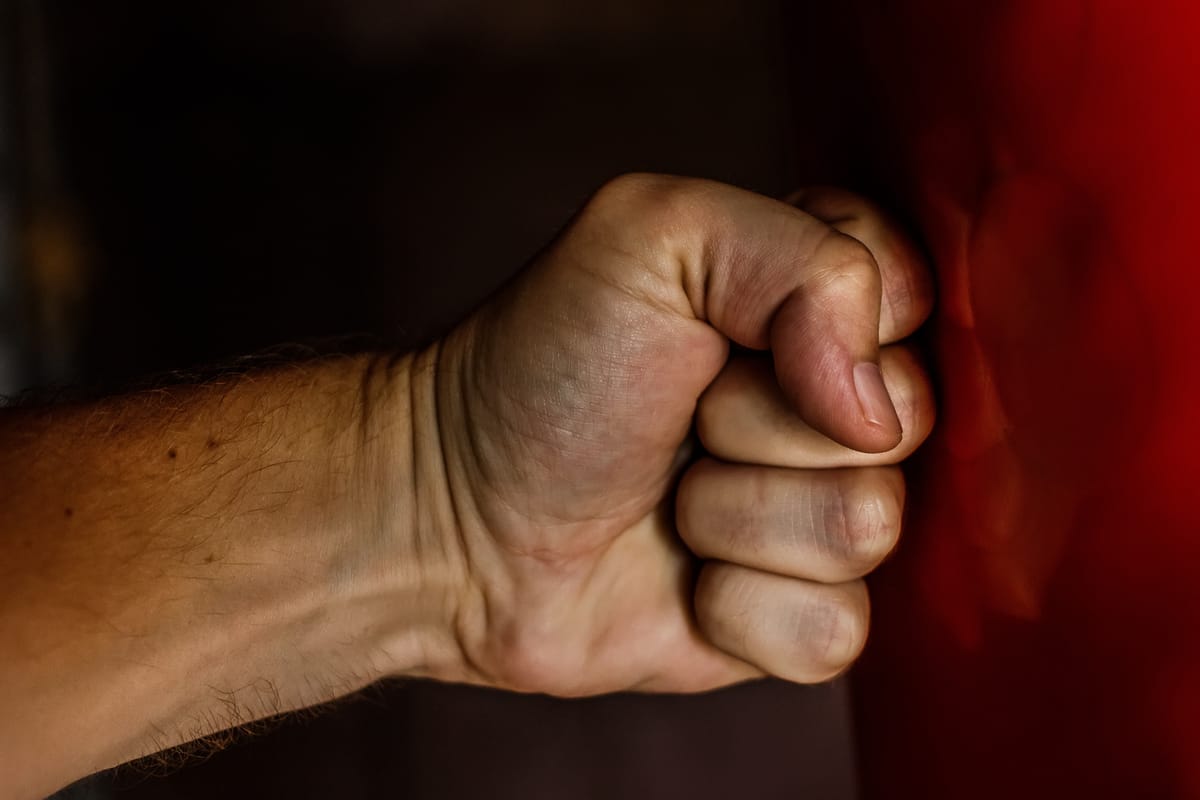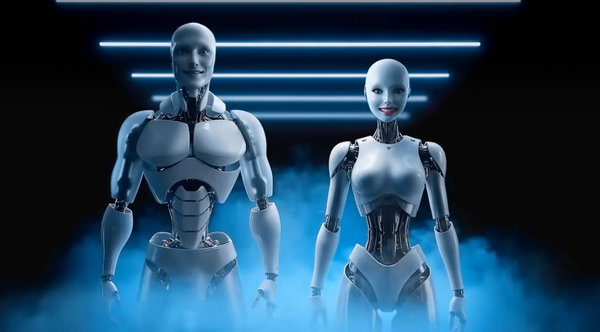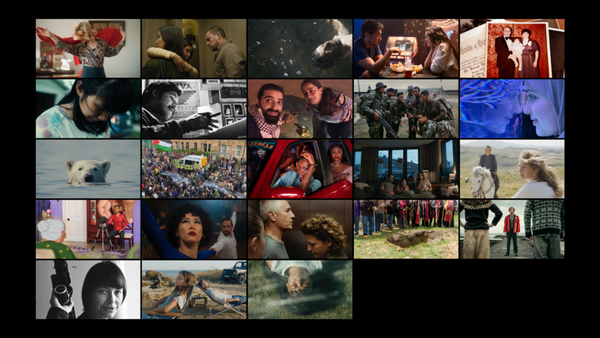For Elon and His Followers, The Cruelty Is The Point
The week that Elon Musk smashed through rock bottom.

An unfortunate spectacle unfolded on Twitter this past week.
Haraldur “Halli” Thorleifsson is an Icelandic designer whose company, Ueno, was acquired by Twitter in 2021. Halli is also, as far as I can tell, one of the best human beings alive? To wit:
- When his company was acquired, he chose to be paid in the form of wages, which maximized the amount of taxes he paid in order to support the Icelandic social system.
- Halli has muscular dystrophy and is the founder of Ramp Up Iceland, which aims to install wheelchair ramps and make Iceland more accessible. Apparently they’ve already installed over 1,500 ramps!
- He has won multiple Person of the Year awards from media organizations.
On Monday, Halli tweeted the following:
Dear @elonmusk 👋
— Halli (@iamharaldur) 8:38 PM ∙ Mar 6, 2023
9 days ago the access to my work computer was cut, along with about 200 other Twitter employees.
However your head of HR is not able to confirm if I am an employee or not. You've not answered my emails.
Maybe if enough people retweet you'll answer me here?
Twitter, which has shed about 2/3rds of its workforce since Musk took over in October 2022, has experienced wave after wave of layoffs (at least five, by my count). But perhaps just as demoralizing and crushing as the layoffs have been the poor communication around them. Employees often don’t know if they’ve been laid off, if/when they’re getting severance, or any other of the basic duties companies typically perform when they’re handing out life-altering news to thousands of people. I would be shocked if Twitter had a functional HR department at this point.
Halli, having tried and failed to get news of his employment status, went straight to the source. After getting written (tweeted) approval from Musk to share about his work, Halli responded with a list of reasonable, if not impressive accomplishments.
@elonmusk - led design crits to help level up design across the company
— Halli (@iamharaldur) 1:18 AM ∙ Mar 7, 2023
- was hiring manager for all design roles
- worked on efforts to steer the company away from focusing on power users and on to younger users (because our user base is aging)
Musk was unmoved.
@iamharaldur - Level up from what design to what? Pics or it didn’t happen.
— Elon Musk (@elonmusk) 1:26 AM ∙ Mar 7, 2023
- We haven’t hired design roles in 4 months
- What changes did you make to help with the youths?
Musk later tweeted how he really felt about this employee.
@anothercohen The reality is that this guy (who is independently wealthy) did no actual work, claimed as his excuse that he had a disability that prevented him from typing, yet was simultaneously tweeting up a storm.
— Elon Musk (@elonmusk) 7:47 AM ∙ Mar 7, 2023
Can’t say I have a lot of respect for that.
Now, I am not a lawyer, but I’m pretty sure that this tweet is full of the worst things you can say publicly as a CEO. Musk reveals Halli’s disability status, accuses Halli of fabricating his disability, then claims Halli did no work (also, apparently Musk isn’t aware of the existence of dictation and accessibility software?). Beyond being morally reprehensible, it’s just…not smart to say all this? Especially when you have lawsuits claiming you discriminate against disabled people still pending?
Halli responded to Musk with a spicy thread and Musk eventually issued a half-hearted apology for his crapulence.
@danielhoughton @anothercohen @iamharaldur Based on your comment, I just did a videocall with Halli to figure out what’s real vs what I was told. It’s a long story.
— Elon Musk (@elonmusk) 10:58 PM ∙ Mar 7, 2023
Better to talk to people than communicate via tweet.
[Side note: Founders of acquired companies like Halli don’t work under the same terms as normal employees. It’s highly likely that in the event Halli was laid off or terminated, he would be immediately owed a payout that would’ve otherwise been distributed to him over the course of several years. But at this point, whether Halli remains at Twitter or not, he certainly has enough evidence for a lawsuit against Elon.]
Alright, so Musk did something incredibly short-sighted, self-annihilating, and value-destroying for himself and for the social media company he owns and runs. Not exactly the biggest newsflash. Why did I feel the need to write about this?
The Function of Cruelty
As with many things on Twitter in the Musk era, this incident was a study in extremes. Here was an accomplished employee (who has dedicated a significant part of his life to helping people at his own expense) asking a simple, reasonable question to a megalomaniacal billionaire who is speed-running his company into the ground: do I still work for you? In a decent world, a response would be something closer to a yes or no, with an apology about how the organs of said company had failed to provide an answer to the question in a reasonable timeframe.
Instead, Musk responded with skepticism, contempt, and mockery. And his followers also joined in on the pile on, speculating that Halli probably wasn’t a very good employee and deserved to get fired.
@iamharaldur @elonmusk Maybe you weren’t very good at the work you did? I’ve know quite a few ‘leads’ in my time and they seem to do nothing but take credit for other peoples work, also why did it take you 9 days to reach out on here? You know he’s active as hell on this platform, first place to start.
— Brett Scanlon (@brettyscan) 8:45 AM ∙ Mar 8, 2023
@iamharaldur @elonmusk You must not be very essential to have no access for 9 days and still wonder if you're still an employee.... It sounds like you thought you were more important than you actually were! Plus, Twitter still works. A lot of places need janitorial help. Good luck.
— The Conservative Poet (@Theconspoet) 10:58 AM ∙ Mar 8, 2023
@iamharaldur @elonmusk Stop playing the victim halli !! Move on
— Mark john (@MarktheNorseman) 5:10 PM ∙ Mar 7, 2023
I haven’t been able to stop thinking about this essay by Adam Serwer published in 2018 called “The Cruelty is the Point” (I’d also recommend his book of the same name). It really helped to unlock something for me — why I was watching seemingly decent people tolerate, and then eventually revel in and celebrate the cruelty that Trump inflicted on his enemies. To use product management language, the cruelty was not a bug; it was a feature.
Writing about the Kavanaugh hearings and how Trump mocked Christine Blasey Ford, Serwer explains [emphasis mine]:
Once malice is embraced as a virtue, it is impossible to contain.
The cruelty of the Trump administration’s policies, and the ritual rhetorical flaying of his targets before his supporters, are intimately connected. As Lili Loofbourow wrote of the Kavanaugh incident in Slate, adolescent male cruelty toward women is a bonding mechanism, a vehicle for intimacy through contempt. The white men in the lynching photos are smiling not merely because of what they have done, but because they have done it together.
We can hear the spectacle of cruel laughter throughout the Trump era. There were the border-patrol agents cracking up at the crying immigrant children separated from their families, and the Trump adviser who delighted white supremacists when he mocked a child with Down syndrome who was separated from her mother. There were the police who laughed uproariously when the president encouraged them to abuse suspects, and the Fox News hosts mocking a survivor of the Pulse Nightclub massacre (and in the process inundating him with threats), the survivors of sexual assault protesting to Senator Jeff Flake, the women who said the president had sexually assaulted them, and the teen survivors of the Parkland school shooting. There was the president mocking Puerto Rican accents shortly after thousands were killed and tens of thousands displaced by Hurricane Maria, the black athletes protesting unjustified killings by the police, the women of the #MeToo movement who have come forward with stories of sexual abuse, and the disabled reporter whose crime was reporting on Trump truthfully. It is not just that the perpetrators of this cruelty enjoy it; it is that they enjoy it with one another. Their shared laughter at the suffering of others is an adhesive that binds them to one another, and to Trump. […]
It reflects a clear principle: Only the president and his allies, his supporters, and their anointed are entitled to the rights and protections of the law, and if necessary, immunity from it. The rest of us are entitled only to cruelty, by their whim. This is how the powerful have ever kept the powerless divided and in their place, and enriched themselves in the process.
This concept is one we’ve seen played out time and time again in Twitter’s Musk era. Musk responds to reasonable people with cruelty and his followers delight in it, perhaps joining in. For them, it’s enjoyable to root for a successful businessman like Musk and it’s fun to humiliate the losers. As Serwer writes in the above piece, “Taking joy in that suffering is more human than most would like to admit.” And the cruelty serves a social function by establishing an in-group that’s worthy of understanding and compassion, vs. an out-group that’s deserving of contempt.
The bigger concern for me is what happens in the long run. Cruelty also extracts significant social costs on those who inflict it. For instance, I’m sure there are many people today whose opinion of Musk is even worse than it was a week ago — I mean, what Musk tweeted was pretty beyond the pale! But once you begin participating in such cruelty, it becomes harder and harder to justify and excuse it. And the process of extracting yourself from this toxic relationship where you are stanning for the billionaire starts to become virtually impossible.
Stuff David Chen has made
I’ll probably be live-streaming my viewing of the Oscars tomorrow! I’m not sure exactly where/how I’ll do it but to cover all your bases, be sure to follow me on Twitch (most likely where I’ll be), Instagram, YouTube, and Tiktok.
[PAID ONLY] On my personal Patreon, I recorded a bonus podcast talking about the events described above, plus my spoiler-free thoughts on Scream VI.
Be sure to subscribe to Decoding TV to get my thoughts on the Last of Us finale with Christian Spicer tomorrow night.
On The Filmcast, we reviewed Creed III this past week. Also, be sure to check out our interview with Scott Seiss on YouTube (with an important message about why you should always check your Facebook spam folder).



